9th HWCS International Symposium
Central Themes
In seeking solutions to the current crisis, we run into certain limits, which are the limits and frontiers of our mind. It is necessary to reflect on these limits. The crisis accelerates and social actors become polarized: obscurantist, irrational and violent forms arise which compete with each other.
What are the limits, where are they and how do they prevent human beings from growing and evolving? What are their origins? How do they manifest themselves? What can we do to overcome them? Is it perhaps the conception of the Human Being that limits the possibilities of growth and development? To find "creative solutions" it is necessary to make an effort to overcome the limits that prevent us from thinking with relative freedom.
The central themes that we suggest below, represent proposals to be considered and exchanged, they are drawn up with the intention to obtain ideas and images that can guide the future of the human being.
Human rights of the future: an aspiration of today's world
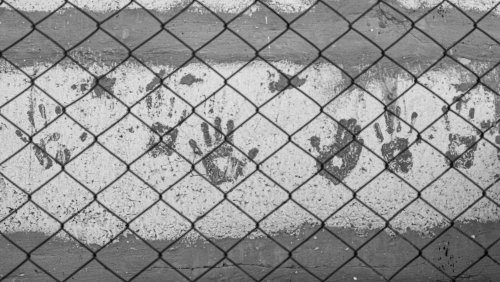 Human rights do not have the universal validity that corresponds to their purpose.
Human rights do not have the universal validity that corresponds to their purpose.
To begin with, human rights suffer the physical, economic, racial, religious, sexual and psychological or moral violence strikes, considering violence as a methodology of the different forms of discrimination.
And there are wars, poverty and social exclusion, racism, religious intolerance, gender inequality, censorship, defamation and coercion, as concrete expressions of daily attacks on human rights around the world.
In view of these phenomena, it could be said that there is no universal consensus on these rights, despite their approval within the UN, or, at least, that there are strong ideological and cultural resistance to their implementation, as well as particular interests that oppose them.
However, it is undeniable that human rights, enshrined in international documents from the second half of the 20th century onwards, have played an important role in the humanization of societies, contributing to the progress of human beings.
And this will be so because human rights translate, albeit imperfectly, a deep aspiration of the human being towards overcoming pain and suffering, through the expansion of freedom and social justice.
This aspiration, synthesized in the ideal and practice of non-violence, has roots in many cultures and not just in the Western one, in which human rights were historically forged. Furthermore, understanding the interdependence between civil and political rights, on the one hand, and economic, social and cultural rights, on the other, makes it possible to overcome the ideological dialectics that raise objections to one and the other, helping to define the obligations of public powers in this field.
Therefore, working for the universalization of human rights implies deepening these two topics, rescuing the contributions of different cultures in this sense and adjusting the role of public institutions in their protection and promotion.
This is the task that this symposium aims to undertake, encouraging the participation of all those who are committed to the present and future of human rights.
Speakers
Non-violence
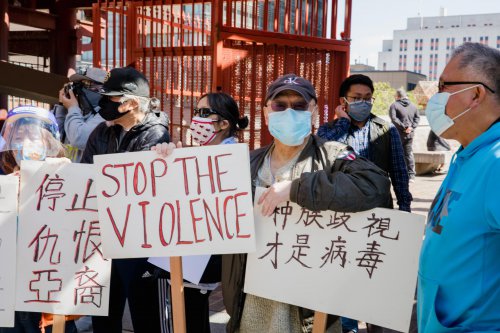 In the context of the 9th WCHS Symposium, dedicated to the limits to overcome in order to get out of the unprecedented crisis that affects us, the eradication of violence is obviously one of the issues at stake.
In the context of the 9th WCHS Symposium, dedicated to the limits to overcome in order to get out of the unprecedented crisis that affects us, the eradication of violence is obviously one of the issues at stake.
The persistence of political and economic powers in using violence as a means to maintain or extend their hegemony, and the generalisation of violence as a basis of expression for human existence, lock humanity into destructive, pusillanimous and dead-end patterns.
In spite of these alarming conditions, there is a worldwide trend towards profound change in all areas, based on resolutely non-violent values. Whether in the economy, technology, education, the environment, the humanities, spiritual investigations or other sectors, the question of the limits imposed by the current societal system is at the heart of the concerns.
Investigations and initiatives, still fragmented and often experimental, are multiplying exponentially. An individual and collective consciousness is nourishing this strong intention to move on to another history and to put an end to violence.
This 9th WCHS Symposium will be an opportunity to examine and stimulate this hopeful trend.
Speakers
Climate and ecological crisis, what boundaries of thought do we need to overcome?
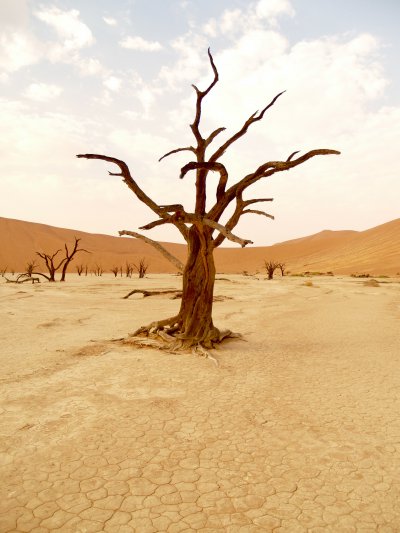 The evident crisis of civilization that humanity is going through, as well as the reality of climate change, place the human species before ecological limits which, if they were to be exceeded, will continue to seriously disturb living conditions throughout the planet.
The evident crisis of civilization that humanity is going through, as well as the reality of climate change, place the human species before ecological limits which, if they were to be exceeded, will continue to seriously disturb living conditions throughout the planet.
Hence, without a doubt, it deserves deep reflection and action to face the future. The last volume of the 6th Assessment Report published by the IPCC called "Impacts, Adaptation and Vulnerability" states that the expected climate impacts will be much more severe than those previously estimated.[^1] Such impacts are already wreaking havoc on our planet and people through droughts, “...scorching heat, destruction of ecosystems, stronger storms and massive flooding, extinction of species... Our planet is in danger, and is being pushed to its limits, and at times further, and the most vulnerable people and ecosystems suffer the most.”[^2]
What possibilities do we have to face this situation? We live under the belief of economic growth and unlimited consumption, but in ecological terms, the earth has a certain carrying capacity; which means that above this limit, the earth's ecosystem as we know it will collapse just as scientists have been warning; however, the established system seems to be turning a blind eye or simply ignoring such warnings.
[^1]: See https://unfccc.int/news/climate-change-affects-us-more-severely-than-previously-thought
[^2]: Remarks by Dr. Stephen Cornelius, WWF's Global Lead for the IPCC following the presentation of the latest IPCC Report, 27-02-2022. https://climatenetwork.org/2022/02/28/new-ipcc-report-paints-harsh-reality-of-unavoidable-climate-impacts-and-loss-and-damage/
Speakers
Economy and Society
 The dimension of the current crisis shows that the current economic system - based on a productivist and consumerist model dependent on the domination of the great international financial capital - does not work; that it is pushing the terrestrial ecosystem that supports life to the limit of the point of no return; that it is governed by the value of money; which is based on the paradigm that grants capital the power to decide on the direction of profit, while the worker only receives the salary; which has a distributive matrix that is biased towards capital and leads to usury, speculation and the generation of parasitic, i.e., non-productive income; and which increasingly exacerbates the unjust distribution of wealth (of the richest 1% versus the vast majority of the population).
The dimension of the current crisis shows that the current economic system - based on a productivist and consumerist model dependent on the domination of the great international financial capital - does not work; that it is pushing the terrestrial ecosystem that supports life to the limit of the point of no return; that it is governed by the value of money; which is based on the paradigm that grants capital the power to decide on the direction of profit, while the worker only receives the salary; which has a distributive matrix that is biased towards capital and leads to usury, speculation and the generation of parasitic, i.e., non-productive income; and which increasingly exacerbates the unjust distribution of wealth (of the richest 1% versus the vast majority of the population).
The current situation is the result of a long historical process in which capital is increasingly concentrated in the hands of banks. This process is heading towards a saturation of the system that is unleashing a succession of various crises of a global nature.
The concentration of capital in the hands of the banks is now not only capable of dominating the interests of national states but also tries to dominate subjectivity due to the control of the media and information.
However, today too, a sensibility with a community and sustainable matrix emerges from many sectors, people who are learning to revalue teamwork, young people who try alternative lifestyles, thinkers who speak of the economy of well-being; organizations that begin to worry about the development of the human potential of their workers.
Etymologically the word economy means "to manage the house"; inspired by its original meaning and within the framework of the Ninth Symposium, we invite you to cross the barriers of the "laws" that govern the economy and to rethink the future of the administration of the common home in an evolutionary and harmonious direction with the ecosystem that sustains life.
Given this situation, it will be interesting to observe how various economic proposals that include the dimensions of human well-being, the fair relationship between capital and work, overcoming the climate crisis, international cooperation, etc., can be intertwined, aiming to create a new model. economic and social in accordance with the deepest aspirations of the human being.
Speakers
The question of gender and feminisms towards the construction of a nonviolent society
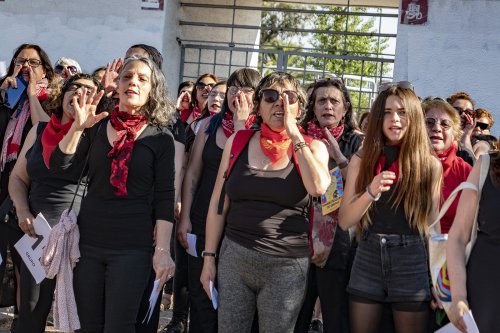 The question of gender and feminisms towards the construction of a nonviolent society
The question of gender and feminisms towards the construction of a nonviolent society
The gender issue is crossing our borders of thought. Today the issue of gender raises not only sexual diversity, but also includes identity, the relationship between peers and with other generations, the relationship with the world, the interpretation of reality, etc.
In parallel, it is increasingly evident to society that violence against women is an undeniable historical fact over the centuries; an issue that, according to feminist currents, responds to the patriarchal structure of today's society.
We also see a greater sensitivity in society for the struggle of women in the vindication of their rights, the full recognition of women in their contribution to humanity, the denaturalization and overcoming of violence.
Freedom, intentionality and its personal, social and historical transforming action characterize people, and it is in this context that we are interested in putting on the table the expression of the new ways of understanding the gender issue and feminisms.
How to address the gender issue in a polarized world in which it is intended to ignore the rights of LGTBIQ+ minorities? What has generated discrimination and violence against women and against other diversities? What is it that gives sustenance and strength to the feminist and diversity movements today? What are the images that enable social transformation towards a non-violent and non-discriminatory society?
Speakers
Health
 We start from the assertion that health is a fundamental human right and that access to comprehensive, quality and timely care should be guaranteed to all people, without discrimination of any kind, according to their needs and respecting the beliefs and choices of each person.
We start from the assertion that health is a fundamental human right and that access to comprehensive, quality and timely care should be guaranteed to all people, without discrimination of any kind, according to their needs and respecting the beliefs and choices of each person.
This care can be provided from different views, conceptions and interventions, freely chosen by people, requiring that these therapies be effective and do not cause more damage than the one they try to repair.
In addition to conventional medicine, there are other modalities such as traditional medicines and alternative and complementary therapies, which have shown their therapeutic value over time and are increasingly widespread due to the growing advancement of the media and migration population.
The population requires that the care systems provide effective coverage to their needs and expectations, which implies a permanent adjustment in the responses that are given both in the number of population covered, and in the type of services offered.
In this sense, the focus on care by specialty of conventional medicine has deepened the knowledge of the diseases that affect communities, but has also multiplied the need for the necessary resources, making the best possible care available only to a few who can afford it.
In this respect, technology and equipment have been developed which, together with the pharmaceutical industry, make healthcare an increasingly important and expensive market.
At the same time, attention is currently debated between being just another market good, or a social policy that guarantees Universal Coverage in Equity.
It is also observed that health policies are more oriented towards guaranteeing the productive capacity than the effective health of the population.
If we look at current trends, we can see that the world population in the middle of the last century was 2.5 billion and today it exceeds 8,000.
Life expectancy, which at the beginning of the last century was around 40 years, has also changed, with more and more countries now tending to exceed 80 years of age.
At the same time, there has been a change in the epidemiological profile, where traditionally acute and infectious diseases prevailed, and now we see a profile where chronic degenerative diseases prevail.
On the other hand, social conflicts are expressed with increasing violence and social relationships tend to isolation, deteriorating mental health.
In addition, we must consider that the degradation of the environment due to uncontrolled exploitation promises new health problems due to climate change and environmental pollution.
If these trends continue, we are heading towards a situation where health care will be for the few who can afford it, leaving the majority of people without adequate care and in an increasingly adverse natural and social environment.
So, what proposals can provide an answer to this coming future? How can we integrate the whole population in an effective health care system, considering in an integral way the physical, psychological and spiritual aspects, overcoming the current fragmentation?
That is what we want to discuss in this next symposium.
Speakers
Education and its contribution to transcending the frontiers of thinking
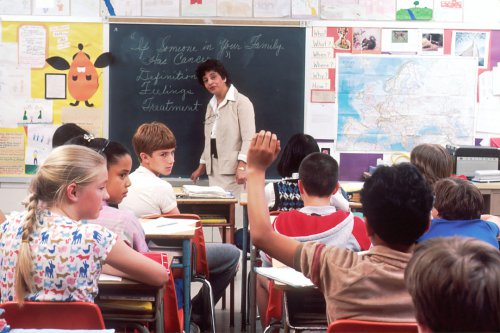 The crisis situation humanity is going through at the present time is evident. All spheres of action and thought are affected by it. Education is also immersed in it.
The crisis situation humanity is going through at the present time is evident. All spheres of action and thought are affected by it. Education is also immersed in it.
The school, for centuries, has been the place where new generations have met with previous generations in order to pass on their knowledge in order to transfer, build and value the cultural knowledge obtained so far.
The responses built and to be built in the face of this crisis are often held back by the limits of short-term pragmatism. We act with the feeling that we live in a continuous state of emergency of educational issues that are solved from a "patch of errors" approach. The pandemic has extrapolated these issues that have already been present for almost a historical century in Latin American and European territories.
In turn, we assume that the substratum of basic beliefs of the time in our specific field has to do with the configuration that the best for the human being is only his development in the social political environment; as it was proposed since the 18th century, materialized in the idea of Educating the Citizen; or also, in the 20th century, the purpose of building the labor force for the market.
Paradoxically, on the one hand, we need references to guide our action in the world. But, on the other hand, the traditional references appear to us as inadequate and suffocating, considering education again and again as an outdated, old and obsolete field in many respects.
The problem of homogenization proposed by the closed system in which we find ourselves, poses the problem of the disappearance of the very rich features of the real diversity of the different communities and human groups.
A new image of education needs to be shaped. The humanist and the humanist pedagogy can give an overcoming response to these criticisms of the specific field and of society.
There is no human action that is not preceded by an idea or an image of what one wishes to do, or what one wishes to achieve with a certain action. Thus, every idea, every image of the future, every proposal for change, first arises in the realm of the individual consciousness. The innovators in the different branches of science have been those who were able to leap over the beliefs of their time.
We need to develop pedagogies that overcome binary thinking (which only includes opposites such as body-soul, friend-enemy, etc.) by a broader and deeper thinking that includes diversity, which we call the triple vision of reality. In this way, students are led to question their interests, their points of view, which make it possible to understand differences and their relationships. Pedagogies that overcome the disguised or evident authoritarianism and replace it with respect for the student's decision as a central value.
We need to make visible the projects that many humanists, and many people with a humanist sense, are carrying out in all latitudes based on the change of thinking about the human being.
Our purposes are to contribute to generate new proposals to overcome the context of the crisis in education; to make visible the possible and concrete answers that reconfigure the image of the human being that is set up from the humanist perspective, and to recognise the existing practices.
Speakers
Consciousness and the World
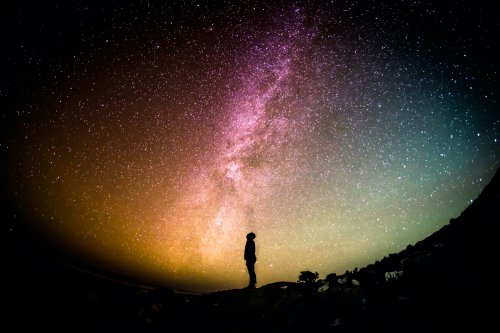 What is consciousness? In principle, it is something that can only be experienced by those who possess it. It cannot be "seen" from the "outside". One way of asking about the consciousness that can be in a given "object" would be to ask "Hello, is anyone there? This is intended to show that consciousness is what allows us to define ourselves as "someone", as a "person". Consciousness is thus the essence of our existence. Literally, without our consciousness we would not exist. We are, above all, bearers of consciousness. Of course, this is only a point of view....
What is consciousness? In principle, it is something that can only be experienced by those who possess it. It cannot be "seen" from the "outside". One way of asking about the consciousness that can be in a given "object" would be to ask "Hello, is anyone there? This is intended to show that consciousness is what allows us to define ourselves as "someone", as a "person". Consciousness is thus the essence of our existence. Literally, without our consciousness we would not exist. We are, above all, bearers of consciousness. Of course, this is only a point of view....
The above includes descriptions and interpretations that derive from the way we humans experience what we call "consciousness", but if we now consider consciousness as that which enables living beings to orient themselves and thrive in their environment, the definition should be extended to all forms of life. In all cases, we will always see consciousness in a structural relationship with the world.
Consciousness could also be defined as "the apparatus, mechanism or ambit that relates the sensations coming from the senses with the data of memory, in order to be able to carry out acts of learning or recognition of the objects that constitute the world". In this case we would be speaking from a biological, functional or computational perspective.
Hegel wrote a book with the subtitle "Science of the Experience of Consciousness", and Chalmers refers to the subject as a "difficult problem". There are numerous points of view from which one can attempt an approach to this elusive object of study, but in this thematic axis we will approach the subject from a perspective that affirms that consciousness has been historically and is today the fundamental factor of human life, and that its evolution and development are essential prerequisites for overcoming the crossroads at which we find ourselves today.
Any possibility of a real change in the physical and social conditions in which humanity lives rests on the possibility of producing a growth in the level of consciousness. Growth that has to do, above all, with a capacity for understanding, and with a sensitivity that allows us to consider the situation in which other human beings live in this world.
By "capacity for understanding" we mean availability of information, capacity for relationship and perhaps a "look" that intuits or suspects the existence of a universal evolutionary intention. An intention that would establish conditions for the emergence and development of life, consciousness and intelligence as essential parts of the Universal Plan. From this perspective, all growing consciousness would surely be oriented towards the protection and care of the various forms of life. But it is clear that there are other "views". The exchange of views is the "raison d'être" of this Symposium.
Consistent with this, we invite papers that promote enlightenment about consciousness, its functioning and its evolutionary possibilities. Perhaps most important would be to find ways to promote the growth of sensitivity and awareness in broad sectors of the population. If this is possible, there will be observers in the future who will be able to share how humans managed to overcome the unique crisis of the 21st century.
Speakers
Spirituality and Transcendence
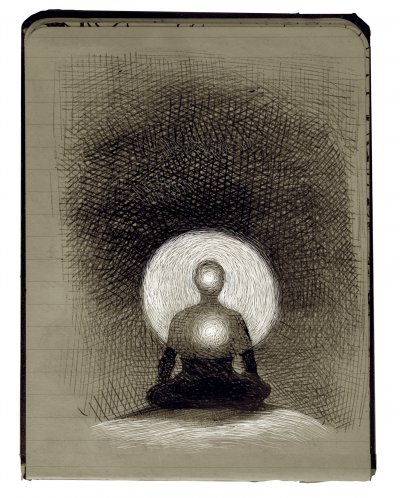 Since the dawn of human history, the human being has had to face what can be defined as the limit par excellence: death.
Since the dawn of human history, the human being has had to face what can be defined as the limit par excellence: death.
Science, technology, philosophy and religions have struggled and continue to struggle against what seems to be an apparently insurmountable limit. It is true that considerable progress has been made in the treatment of many diseases that used to lead to premature death, but inexorably this continues to occur for all human beings, excluding no one.
Some technological developments also open up the possibility of transcending death by hypothesizing the transfer of consciousness to extracorporeal means, but beyond the fact that this possibility may actually materialize in the future, the great issue of the meaning of life against the limit that represents death is still valid.
However, something new seems to emerge in the most intimate reality of the human being. A new spirituality that goes beyond the limits of the ritualism of the great religions and manifests itself in areas that were believed to be totally alien or refractory to the religious dimension. The new spirituality manifests itself in new forms imbued with technology, computing, and space travel. A new search towards a transcendental dimension of existence begins to make its way towards the condition of total disorientation in which the human being finds himself.
Will this new spirituality be capable of suggesting a new concept of emancipation from death? What idea of transcendence will make its way into the heart of the human being?
Speakers
Communication in the 21st century
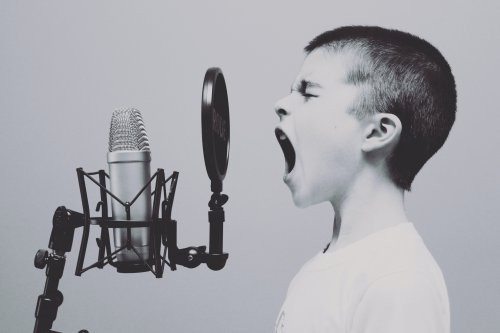 The world is in crisis, however, there are overcoming actions that, driven by the people, cross borders. At the same time, the forces that are still dominant, responsible for the serious current social and environmental problems, seek to sustain discourses that slow down the processes of change and deepen conflicts, often reversing important achievements of social groups.
The world is in crisis, however, there are overcoming actions that, driven by the people, cross borders. At the same time, the forces that are still dominant, responsible for the serious current social and environmental problems, seek to sustain discourses that slow down the processes of change and deepen conflicts, often reversing important achievements of social groups.
How to break the determinisms that provoke these corporate discourses? How to gain freedom by using community and alternative media? How to expand the scope of their content? If the Internet is an opportunity in this sense, can it also put people's rights at risk?
Bearing in mind that there is only community if there is communication, how to strengthen that communication by spreading inspiring local stories, as a tool for the transformation of the world and to improve the link between people? What role does art have as a channel for reflections and dialogues on current problems and on the future we long for?
Speakers
Indigenous peoples and decolonization movements
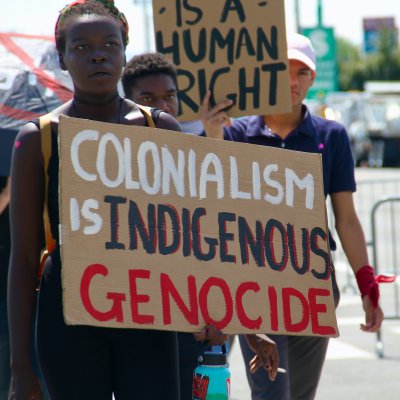 In different regions of the world, entire towns were devastated by invaders who converted them into slavery and through territorial invasion and material plundering, leaving entire swathes of the population submerged in poverty until the present day.
In different regions of the world, entire towns were devastated by invaders who converted them into slavery and through territorial invasion and material plundering, leaving entire swathes of the population submerged in poverty until the present day.
But not satisfied with this type of holocaust, an attempt was made to suppress the Cosmogony of these Ancestral peoples with different campaigns of "Extirpation of Idolatry", as in the case of America.
This story shows us the violence and dehumanization of the "Colonizers" aspects, where the "Naturals" are under a "Darwinist" look, transferring a Naturalist look to the social field.
This sum of procedures of the Empires worldwide, makes us reflect on the work that is up to us today by the new generations to study and spread what are the aspects of "Decolonization".
Today, on the forced path towards a synthesis of cultures, without respect for diversity, it is urgent to take new positions, new challenges that tend to create networks. Networks of the collectives affected by these social policies.
It is time to think about the importance that views that prioritized the internal over the external had in other times, balancing action in the world and that this morality was embodied in an ethics of conduct.
It is necessary to be able to leap over the gaze of a world that no longer exists, the centralist, capitalist, closed model, where there is no possibility of overcoming large and small human populations. Decolonization is first mental, and then in the world, objectual.
In this axis we will see these themes, of the How find that union between networks and groups of Descendants and Decolonization Movements, taking into account the intangible aspects as spiritual references and that in the light of current knowledge, strengthen and invigorate this project, endowing it with a deeper meaning, apart from the necessary claims of land, peace, rights and equal opportunities.
It is proposed to change these conditions jointly, between teams from different countries, common problems. Problems of democratic participation, of exercising the same rights and growing that old spirituality lost in the last years of dehumanizing industrialization, in the light of the new contributions.
We invite all those who know that ancestral knowledge gives them inner strength and that there is a materialistic culture that is lost. We propose to advance beyond the frontiers of thought, to start implementing new paradigms.
Speakers
Eduardo Suetta, Carlos Guajardo, Olivier Flumian, Daniel Robaldo
